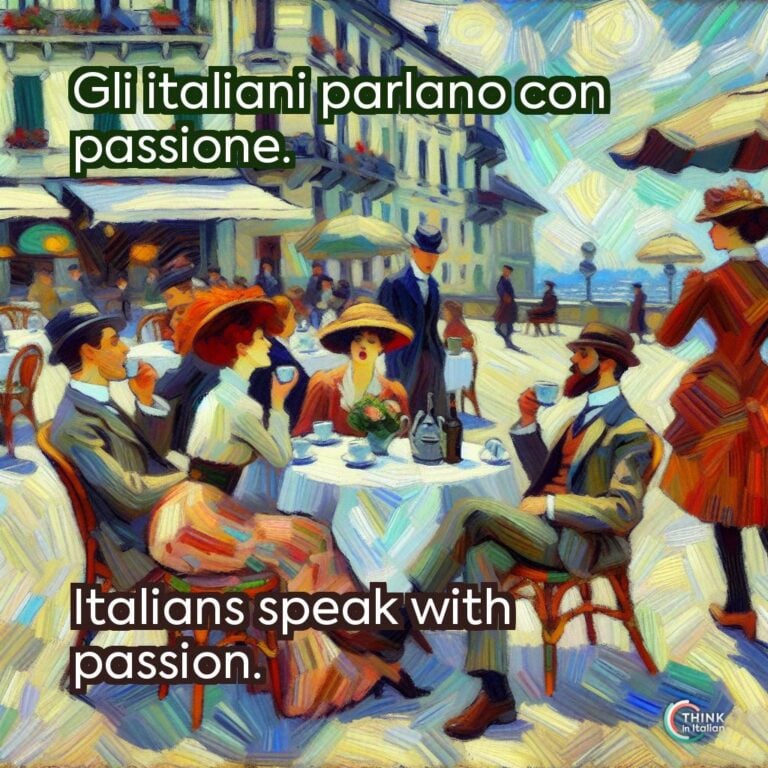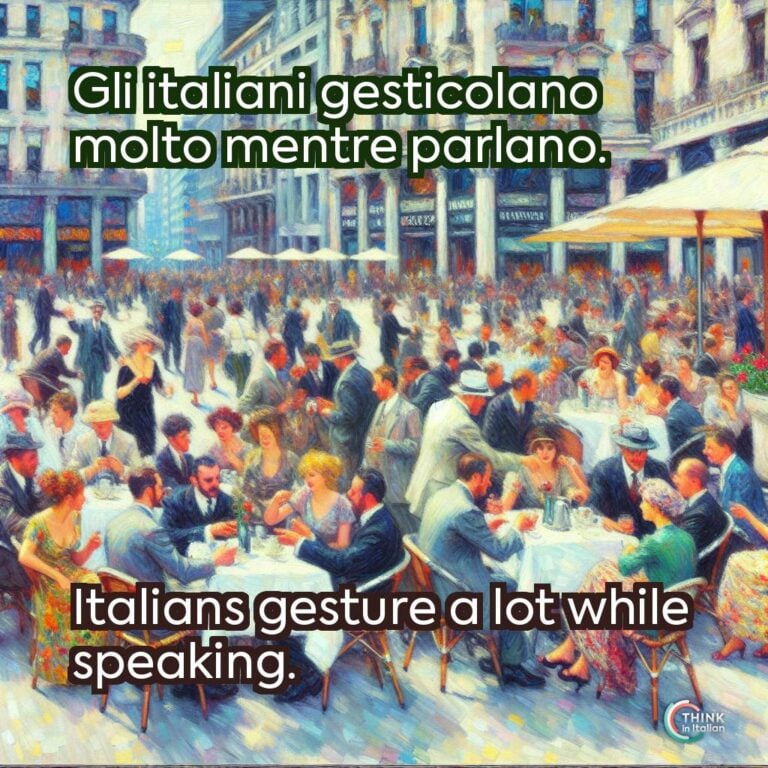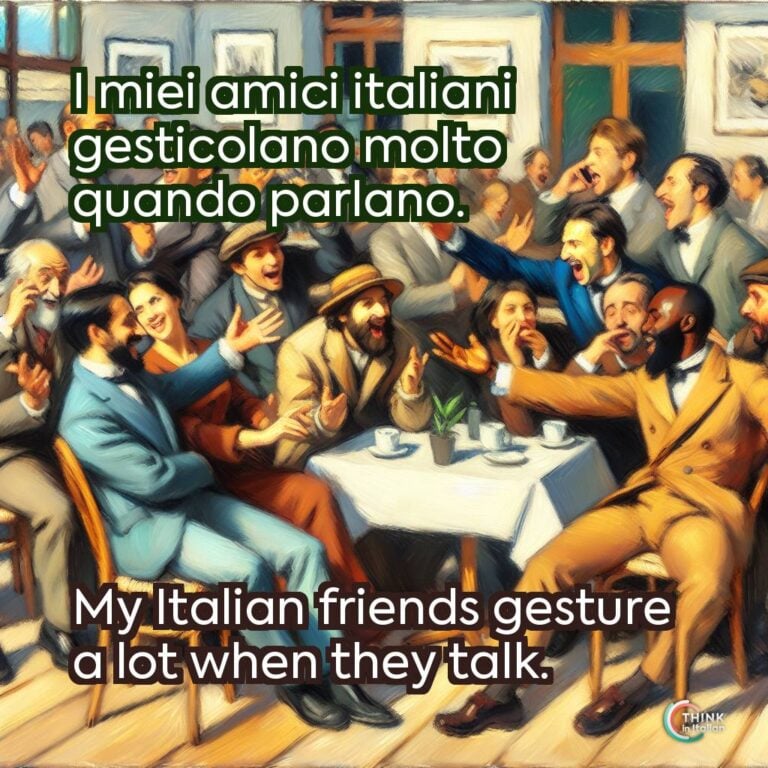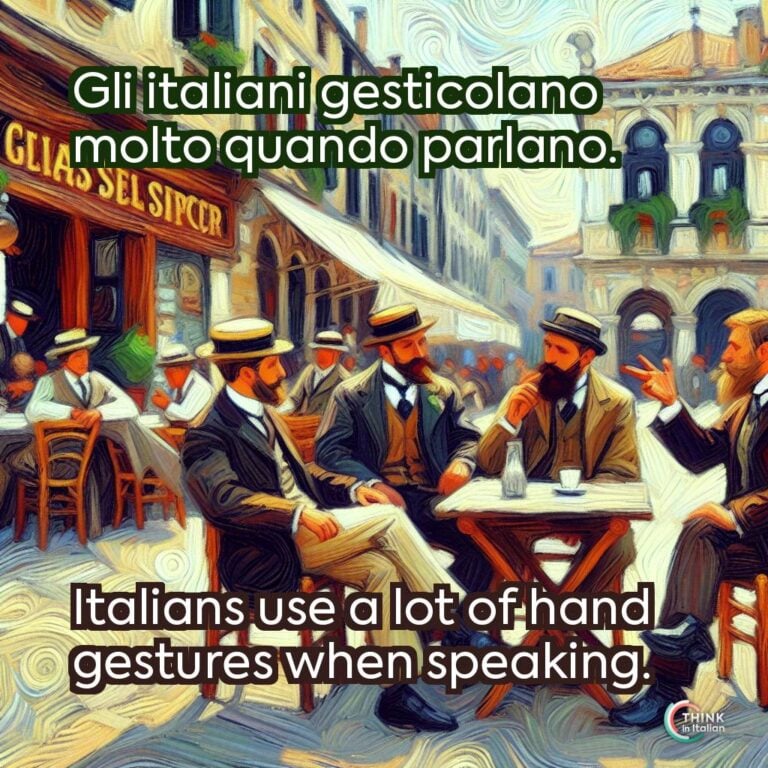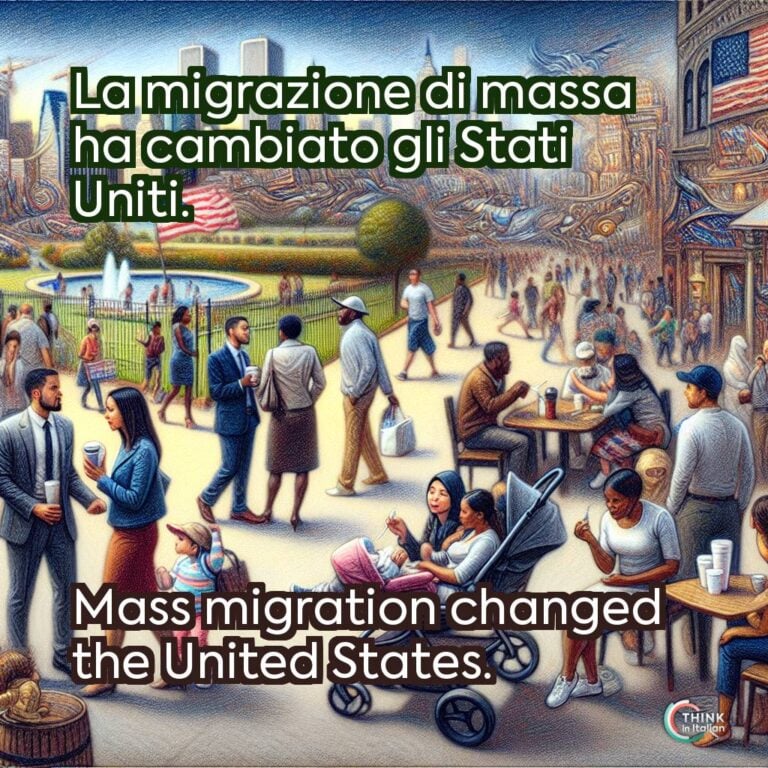Jokes About Italians
Origins of Italian Stereotypes
Most of the jokes about Italians you hear nowadays are deeply rooted in historical events, particularly the mass migration of Italians to the United States between the late 19th and early 20th centuries.
This migration led to the formation of ethnic neighborhoods that were unfairly seen by the media as ignorant or criminal, which fueled many stereotypes.
As a child, I remember hearing stories from my grandparents about how their parents struggled to be accepted in their new country.
One of the most damaging stereotypes is the association of Italians with organized crime because of the rise of the Mafia in the 1920s and 1930s, that is still central in many jokes about Italians that we still hear one hundred years later.
Another reason why I think Italians are sometimes made fun of is their expressive and passionate communication style. I believe that this cultural trait has often been misinterpreted as overly dramatic.
This happens quite often to me as well: when I am with my Italian friends or during family gatherings, my international friends tend to mistake our animated discussions for conflict, and end up believing that Italians are rude and conflictual, which in reality is not.
The Best Jokes About Italians
Respectful humor can help highlight common human experiences, creating empathy and understanding, allowing us to see the world from another’s perspective and fostering inclusivity.
I am a big fan of jokes, especially those that celebrate cultural uniqueness: if we focus on shared laughter rather than divisive stereotypes, I believe humor can bring people together and celebrate diversity.
However, it’s crucial to balance humor with respect. While jokes can be a way to appreciate cultural quirks, we must avoid reinforcing harmful stereotypes that perpetuate prejudice.
Here are some jokes about Italians:
- What’s the difference between a smart Italian and a unicorn?
- A: Nothing, they’re both fictional characters
- What do you call a dodgy neighbourhood in Italy?
- A Spaghetto.
- What do you call an Italian with his hands in his pockets?
- Mute.
- Why are most Italian men named Tony?
- When they got on the boat to America they stamped To NY (Tony) on their foreheads.
- What do you call an Italian with a broken arm?
- Speech impaired.
- How do you know if you’re Italian?
- You have a list of 15 phone numbers to reach your family of three.
- What do you call the rough parts of Italy?
- The spa-ghetto.
Italians’ Sense of Humor
Humor plays a significant role in the Italian culture. I would say that, in general, Italians’ sense of humor allows us to express ourselves, get through challenging circumstances, and form relationships with others.
Through self-deprecating humor we make jokes about ourselves, we reclaim our identity, show resilience against prejudice, and diminish the power of negative stereotypes.
Italian jokes are known for their clever wordplay, puns, and cultural references. The jokes can vary from brief one-liners to lengthy tales – barzellette – with surprising turns.
As a language enthusiast, I have always enjoyed learning about the culture and traditions of other countries, because they reflect language and are reflected in language.
Here I will list some of the most famous Italian comedians that, for me, are the perfect example of Italian humor. They are the personification of respectful self-deprecating humor, well combined with social denounces and funny quotes.
- Roberto Benigni is an acclaimed Italian comedian, actor, and director known for his work in “Life is Beautiful”. His humor often addresses themes of love, hope, and humanity, bridging cultural divides and highlighting the resilience of the human spirit.
- Checco Zalone is my favourite Italian comedian ever! He is known for his satirical take on Italian society and politics. His films use humor to address issues like immigration and cultural integration, encouraging audiences to reflect on these important topics.
- Teresa Mannino is an Italian stand-up comedian and actress who uses her platform to discuss gender roles, regional differences within Italy, and contemporary social issues. Her humor promotes understanding and appreciation of Italy’s diverse culture.
- As a comedian, actress, and television host, Luciana Littizzetto is known for her commentary on social issues. Her humor addresses everything from gender equality to political satire, encouraging audiences to think critically about societal norms.
Can you Make fun of Italian?
Yes, you can. Be respectful, though!
Humor, when used respectfully, can help bridge cultural gaps and foster a sense of inclusivity. Humor can also play a very important educational role. It should be employed to inform, rather than alienate.
As you might have noticed, it is important to know the origins and functions of Italian stereotypes, as it reveals a complex interplay of history, culture, and social dynamics.
If you want to learn the Italian language, you must be familiar with its culture as well, and Italian jokes surely are an important part of it!
Learn more, and make respectful fun of your Italian friends.

